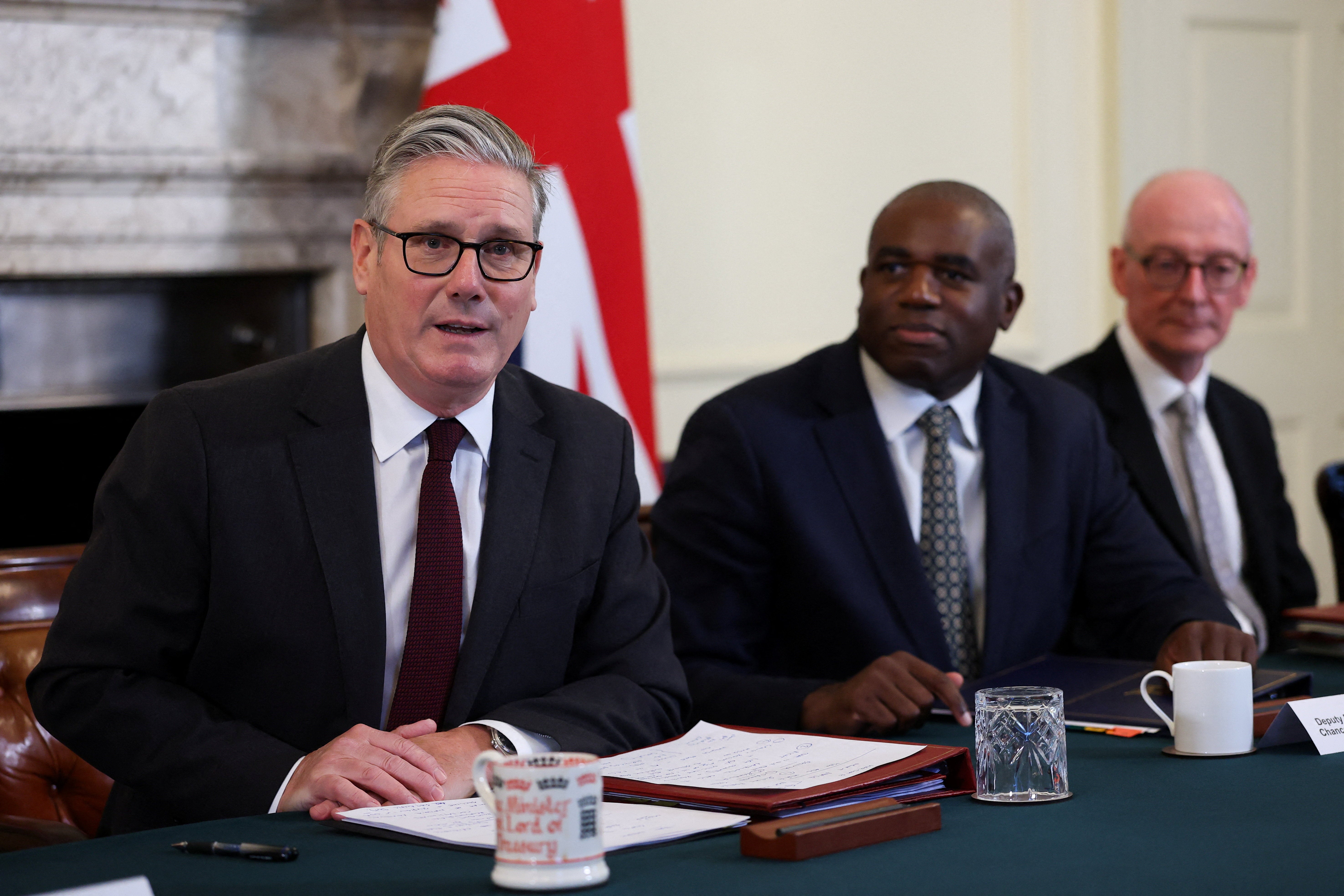Sir Keir Starmer’s approval rating has hit an all-time low despite last week’s reshuffle designed to help reset his struggling government.
The prime minister is now one of the most unpopular leaders in the West, falling below Donald Trump and Japan’s newly resigned leader Shigeru Ishiba, according to an analysis of polls from their respective countries.
Sir Keir’s net approval rating has plummeted from 11 per cent last July to -44 this week, according to pollsters More in Common, while a whopping 62 per cent say he is doing a bad job and only 18 per cent think he is doing a good job.
Luke Tryl, UK director at More in Common, said: “A week meant to signal a reset for the government ended instead with a dramatic resignation and reshuffle. More voters than ever now see the government as chaotic, and the prime minister’s approval rating has slumped to its lowest point yet.”
According to More in Common’s poll conducted between 5-8 September – in the middle of Sir Keir’s cabinet reshuffle prompted by the shock resignation of deputy prime minister Angela Rayner – his approval rating has sunk by 54 points since the general election.
His rating is lower than that of all other party leaders in the UK. And when compared with approval rating polls on leaders in other countries, Sir Keir is now one of the West’s most unpopular leaders, even trailing behind US president Donald Trump.
Mr Trump, who entered his second term as US president earlier this year, remains one of the most popular leaders, with a -13 per cent approval rating – despite a steady decline in support since January.
Even former Japanese leader Shigeru Ishiba, who resigned last week after a series of political defeats, maintained a higher net approval rating than Sir Keir, at -19 per cent, according to Japanese news agency Kyodo.
Giorgia Meloni is also more popular in Italy than Sir Keir is in the UK, despite the right-wing leader dropping in the polls since being elected in 2022.
Only French president Emmanuel Macron is more unpopular than Sir Keir, at -53 per cent on average, after eight years of presidency and recent losses in the legislative election.

The More in Common poll also found that more than three-quarters of Britons, 77 per cent, say that the government is chaotic, compared to 23 per cent who see it as stable, the highest since the general election.
Britons see the Labour government to be as sleazy as the last – with 32 per cent saying it is more sleazy than the previous Tory government, compared to 24 per cent who believe they are less sleazy, and 44 per cent who say they are “about the same”.
It comes after Sir Keir was forced to conduct a major reshuffle of his top team after Ms Rayner sensationally quit as both housing secretary and deputy prime minister, after admitting she failed to pay £40,000 in tax when purchasing a property.
Her resignation piled further pressure on his government, which is significantly lagging behind Reform UK in the polls and has faced mounting criticism for not achieving enough in its first year in power.
It also derailed his planned reset of the government, just weeks before what is expected to be a difficult Labour Party conference for the PM.

Sir Keir’s unpopularity could prove challenging for the party as the political landscape of Britain looks far different from when Labour was elected.
Most pollsters now show Reform as being the leading party in terms of the popular vote, taking 31 per cent of voting intention in an earlier poll from More in Common.
“With Labour appearing increasingly divided, a growing number of people are now looking at (Nigel Farage’s) Reform as the more united party,” notes pollster Mr Tryl.
“Labour faces an uphill climb reassuring voters it is still the safer, more stable choice.”
While Labour remains ahead of the Conservatives, at 21 per cent to 18 per cent, the party in power has shed nearly half of its supporters, the poll found.
Just 59 per cent of people who voted for Labour in last year’s general election say they are sticking with the party.
Reform could scoop up 13 per cent of the Labour vote in the next election, More in Common’s latest poll shows.
While other Labour voters are moving towards the Lib Dems (7 per cent), Greens (4 per cent) and Tories (3 per cent) – with one in 10 saying they “don’t know” how they would vote.
Although Reform poses a threat to Labour, it has taken more support from the Tories – attracting nearly a third (29 per cent) of its support, the poll shows.
However, Reform still has just four MPs, having lost two since last year, and gained another through a by-election.
It is unclear how the popular vote would translate through the constituency-based voting system next year.



